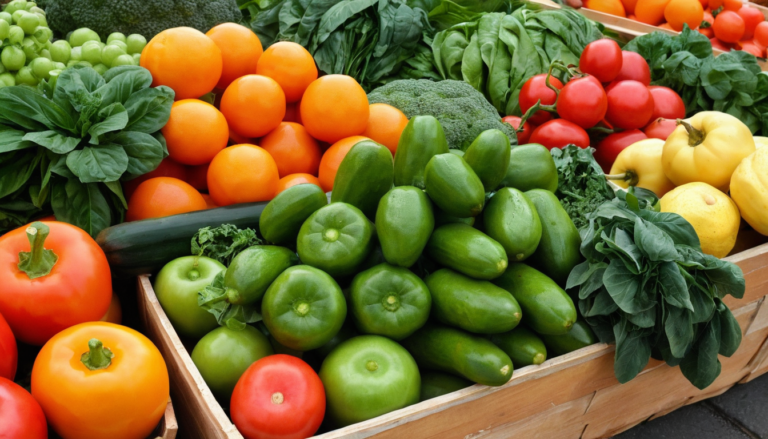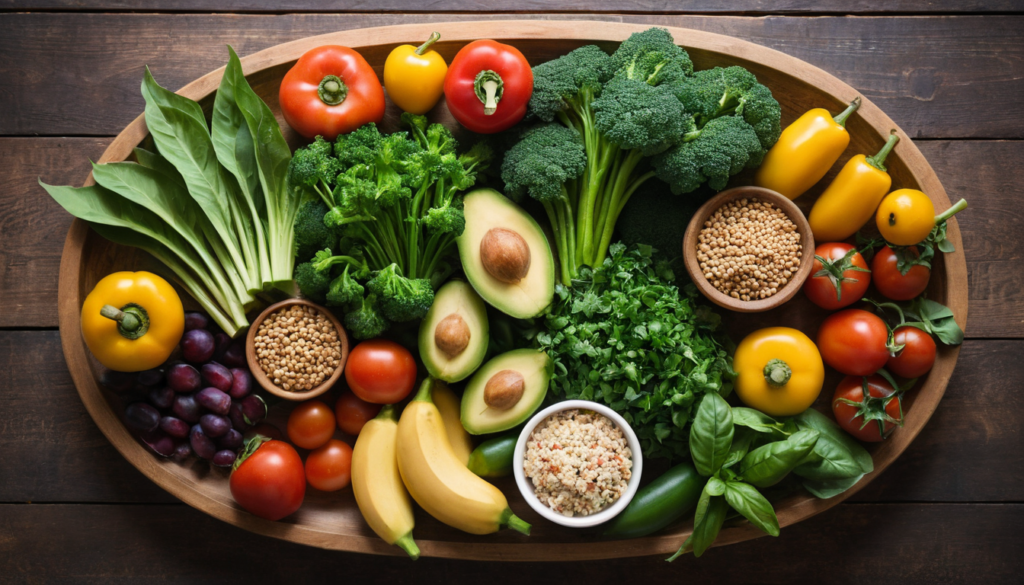Understanding Organic Produce
Organic produce is grown without the use of synthetic fertilizers, pesticides, or herbicides. Instead, organic farms utilize natural methods such as crop rotation, composting, and biological pest control to cultivate their crops. This approach to farming prioritizes soil health, ecosystem balance, and biodiversity. In many countries, organic foods are regulated and must meet specific standards to be labeled as organic, providing consumers with a sense of trust in what they are purchasing.
The Nutritional Advantages
One of the most compelling reasons to choose organic produce is its potential nutritional benefits. Studies have suggested that organic fruits and vegetables may contain higher levels of essential nutrients compared to conventionally grown options. For instance, a 2014 study published in the British Journal of Nutrition found that organic crops had significantly higher concentrations of certain antioxidants, vitamins, and minerals.
These higher nutrient levels can be attributed to the natural farming practices employed by organic farmers, which allow the soil to maintain its health and fertility. Health-conscious individuals can therefore benefit from an increased intake of these vital nutrients when they incorporate organic produce into their diets.
Reducing Exposure to Harmful Chemicals
One of the most critical reasons for choosing organic produce is the reduction in exposure to harmful chemicals. Conventionally grown fruits and vegetables are often treated with pesticides and herbicides designed to protect crops but can also pose health risks to consumers. Studies have shown that long-term exposure to these chemicals can lead to various health issues, including hormonal disruptions, neurological problems, and increased risk of certain cancers.
By opting for organic produce, consumers can significantly reduce their exposure to these harmful substances. Organic farming practices prioritize the use of natural pest control methods, ensuring that the food we consume is safer and free from toxic residues.
Environmental Benefits
Choosing organic produce not only benefits individual health but also positively impacts the environment. Organic farming promotes biodiversity and minimizes pollution by avoiding synthetic chemicals that can leach into the soil and waterways. Additionally, organic farms tend to use less water and employ sustainable practices that protect local ecosystems.
Moreover, organic farming often uses crop rotation and cover cropping, methods that can restore vital nutrients to the soil, reduce erosion, and improve the overall health of the environment. By supporting organic farming practices, consumers contribute to a more sustainable and balanced agricultural system that benefits both current and future generations.
Supporting Local Economies and Communities
Another significant benefit of purchasing organic produce is the support for local economies and communities. Many organic farms are small, family-owned farms that prioritize ethical practices and sustainability over mass production. By choosing organic, consumers often support these smaller farmers, helping them thrive and maintain their operations while fostering a sense of community.
Moreover, buying local organic produce can reduce the carbon footprint associated with food transportation, as many organic farms focus on selling directly to consumers or through local farmers’ markets. This practice shortens the supply chain, promoting fresher produce and creating a stronger bond between consumers and producers.
The Taste Factor
Many people who choose organic produce often notice a difference in taste compared to conventionally grown options. The absence of synthetic chemicals and the emphasis on natural growing methods can lead to more flavorful fruits and vegetables. A common sentiment among organic produce enthusiasts is that they can taste the freshness and quality in organic foods. This enhanced taste can encourage individuals to consume more fruits and vegetables, which is beneficial for overall health.
Improved Food Safety
Food safety is another area of concern for consumers, and organic produce provides an added layer of assurance. Organic farms are subject to strict regulations and inspections that ensure they adhere to high safety standards. The use of fewer chemicals and synthetic inputs means that organic produce is less likely to be contaminated with harmful substances. Consequently, many consumers feel that organic produce represents a safer choice for themselves and their families.
Conclusion
In conclusion, the benefits of organic produce are numerous and far-reaching, impacting individual health, the environment, and local communities. By making informed choices and prioritizing organic foods, consumers can enjoy the nutritional advantages, reduce exposure to harmful chemicals, and support sustainable agricultural practices. As the demand for organic produce continues to rise, it is increasingly important to understand its significance and the positive effects it can have on personal health and the planet.
So next time you’re at the grocery store or market, consider choosing organic produce, not just for its taste but for the wealth of health benefits it can provide. In growing not just your food, but a healthier society, every small choice makes a difference.



